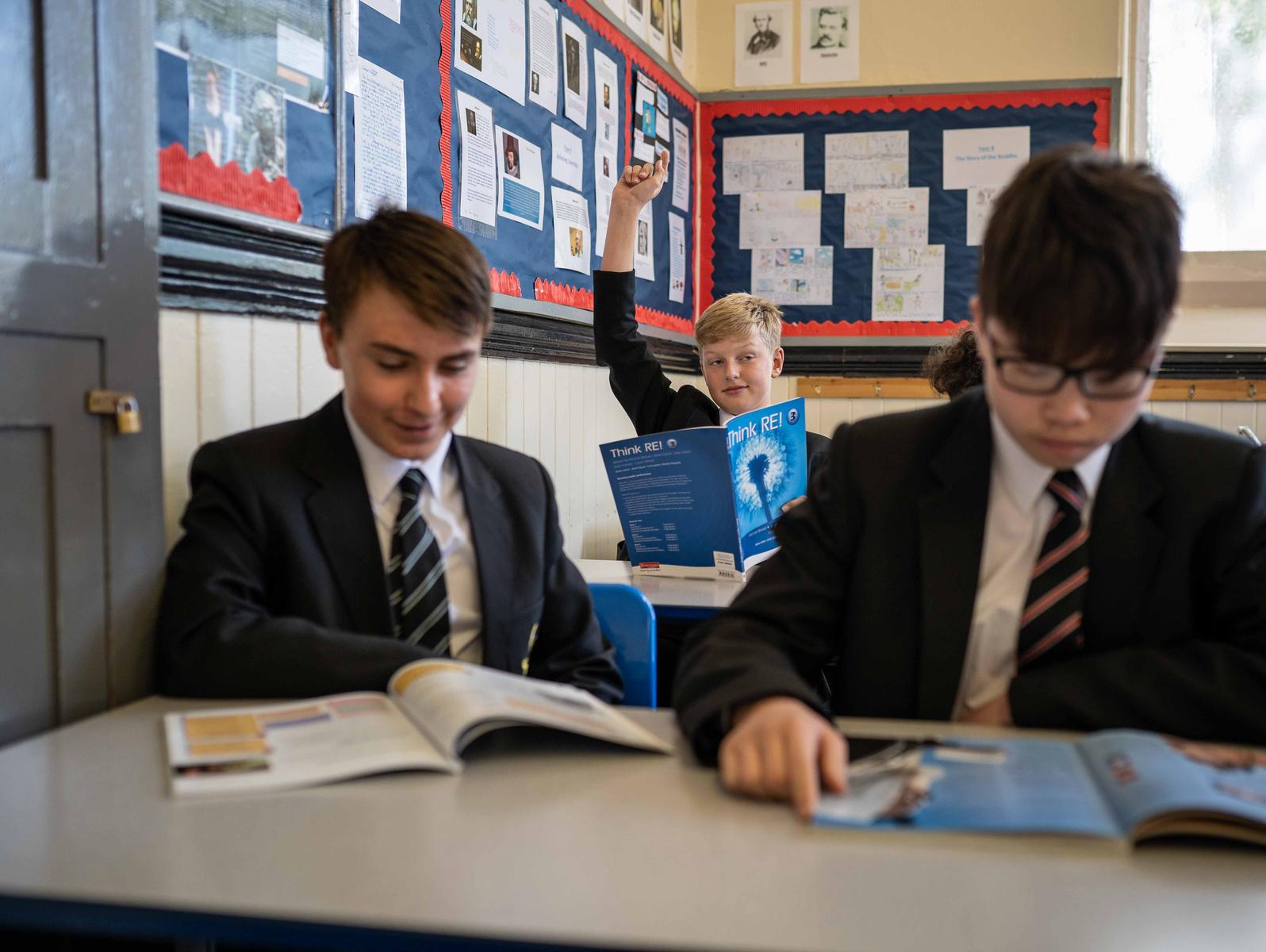
3 minute read
Drama
21
Drama
Advertisement
Component 1: Understanding drama (40% of the GCSE)
What's assessed?
Knowledge and understanding of drama and theatre Study of one set play from a choice of six Analysis and evaluation of the work of live theatre makers
How it's assessed:
Written exam: 1 hour and 45 minutes Section A: multiple choice Section B: four questions on a given extract from the set play chosen Section C: one question (from a choice) on the work of theatre makers in a single live theatre production
Component 2: Devising drama – practical (40% of the GCSE)
What's assessed?
Process of creating devised drama Performance of devised drama (students may contribute as performer or designer) Analysis and evaluation of own work
How it's assessed:
Devising log (60 marks) Devised performance (20 marks) This component is marked by teachers and moderated by AQA.
22
Component 3: Texts in practice – practical (20% of the GCSE)
What's assessed?
Performance of two extracts from one play (students may contribute as performer or designer) Free choice of play but it must contrast with the set play chosen for Component 1
How it's assessed: Performance of Extract 1 (20 marks) and Extract 2 (20 marks) This component is marked by AQA.

This course suits anyone who is interested in theatre. Students are taken to professional productions in Liverpool, Manchester and elsewhere. Professional actors such as Samuel Roukin visit the department and run workshops.
This GCSE course forms a bridge to the A Level course, and to Drama School for those interested in pursuing Drama as a career.
Mr C. Harrison Head of Performing Arts c.harrison@merchanttaylors.com


23
English & English Literature

Students are entered for both English Language and English Literature and are awarded two separate grades at the end. The new AQA courses that began in September 2015 did herald significant change from previous years’ specifications, with Controlled Assessment a thing of the past and the new GCSE grading of 1-9 replacing the conventional letter grades. Moreover, although Speaking and Listening will still be assessed, it will not contribute to the overall English Language grade, while all examinations for English Literature will be ‘closed book’ , meaning copies are not allowed into the exam room. Both courses build on skills and knowledge of English developed during Years 7, 8 and 9, and will provide a firm foundation for further study of English Language and Literature at Advanced Level.
English Language
There will be TWO examination papers – both featuring unseen texts. Each will demand responses assessed for Reading Comprehension and for Original Writing.
Paper 1 - Explorations in Creative Reading and Writing will feature literary-style texts, while Paper 2 - Writers’ Viewpoints and Perspectives will assess responses based on non-fiction texts
English Literature
This will also feature TWO examination papers – both featuring a range of literary texts. Paper 1 will feature a Shakespeare play from the prescribed list – perhaps ‘Macbeth’ or ‘The Tempest’ - and a further question on a pre-1900 work of fiction, again from the list of set texts including ‘Jekyll and Hyde’ , ‘A Christmas Carol’ and ‘The Sign of Four’ . This paper is worth 40% of the total award.
Paper 2 completes the remaining 60% of the award and will feature four questions - one on a modern piece of prescribed drama, a second on a post 1914 set prose text (options include ‘Lord of the Flies’ , ‘Pigeon English’ or ‘An Inspector Calls’), the third on set poems from the AQA Poetry Anthology and the fourth on ‘unseen’ poetry.
Mr J. Sellick Acting Head of English j.sellick@merchanttaylors.com










